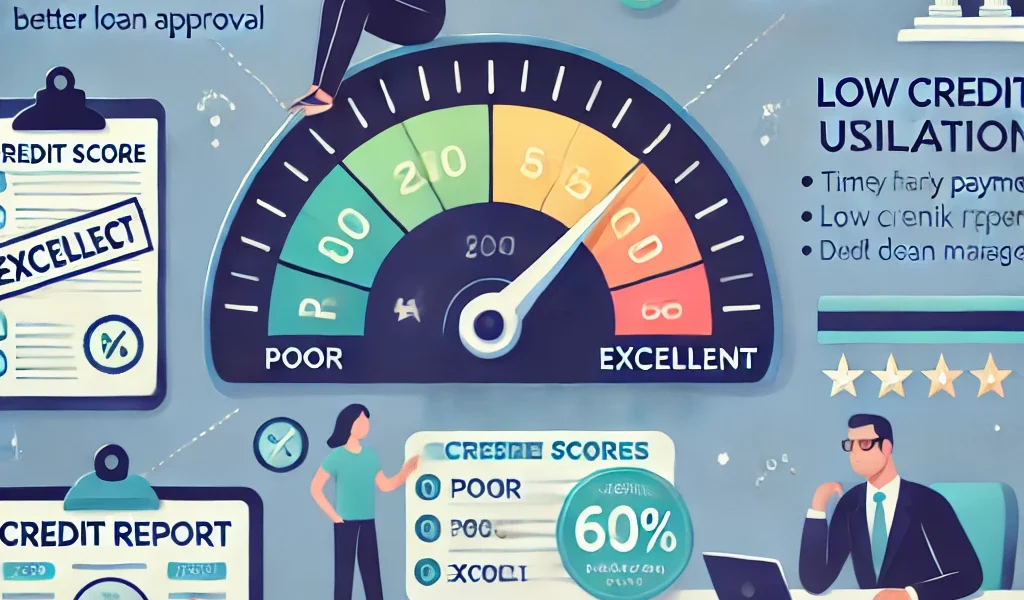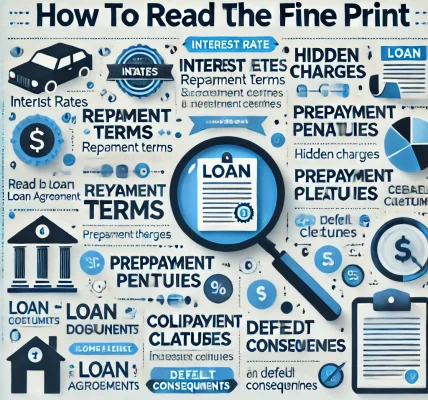Introduction
A good credit score is essential for securing loans with favorable terms and lower interest rates. Lenders assess your creditworthiness based on this score, making it a crucial factor in loan approval. Whether you plan to apply for a mortgage, personal loan, or credit card, improving your credit score can significantly increase your chances of approval. In this guide, we’ll explore effective strategies to boost your credit score and enhance your financial health.
1. Understand Your Credit Score
Your credit score is a numerical representation of your creditworthiness, typically ranging from 300 to 850. The higher the score, the better your chances of securing loans at lower interest rates.
Key Factors Affecting Credit Score:
- Payment History (35%) – On-time payments build a strong credit score.
- Credit Utilization (30%) – The percentage of your available credit that you use.
- Credit History Length (15%) – Older accounts contribute positively to your score.
- New Credit Inquiries (10%) – Frequent applications can lower your score.
- Credit Mix (10%) – A diverse credit portfolio (credit cards, loans, etc.) improves your score.
2. Check Your Credit Report Regularly
Errors in your credit report can negatively impact your score. Obtain free credit reports from agencies like Equifax, Experian, and TransUnion to verify accuracy.
How to Correct Errors:
- Dispute inaccuracies with the credit bureau.
- Provide supporting documents if needed.
- Follow up to ensure corrections are made.
3. Pay Your Bills on Time
Timely payments are the most crucial factor in maintaining a high credit score. Even a single missed payment can significantly lower your score.
Tips for On-Time Payments:
- Set up automatic payments or reminders.
- Pay at least the minimum amount due.
- Prioritize high-interest debts first.
4. Reduce Your Credit Utilization Ratio
Credit utilization is the percentage of available credit that you use. A lower utilization rate indicates responsible credit management.
How to Lower Utilization:
- Keep utilization below 30% of your credit limit.
- Pay off balances in full each month.
- Request a credit limit increase (without increasing spending).
5. Avoid Frequent Loan Applications
Each time you apply for a loan or credit card, the lender performs a hard inquiry, which can temporarily lower your score.
Best Practices:
- Space out loan applications.
- Pre-check eligibility before applying.
- Focus on loans that match your credit profile.
6. Maintain Old Credit Accounts
The length of your credit history affects your score. Keeping older accounts open helps maintain a good score.
How to Manage Old Accounts:
- Avoid closing long-standing credit accounts.
- Use old credit cards occasionally to keep them active.
7. Diversify Your Credit Mix
Lenders prefer borrowers who can manage different types of credit responsibly. A mix of revolving credit (credit cards) and installment loans (auto loans, mortgages) positively impacts your score.
How to Improve Credit Mix:
- Use a combination of credit types.
- Avoid unnecessary debt.
8. Consolidate Debt Wisely
If you have multiple high-interest debts, consolidating them into a single loan with a lower interest rate can improve your credit score.
Debt Consolidation Options:
- Personal loans
- Balance transfer credit cards
- Debt management plans
9. Become an Authorized User
Being added as an authorized user on a responsible user’s credit card can help improve your credit score without taking on new debt.
Considerations:
- Choose a user with a strong payment history.
- Ensure their credit habits align with good financial practices.
10. Seek Professional Financial Advice
If managing credit seems overwhelming, consider consulting a financial advisor or credit counseling service.
Benefits:
- Personalized credit improvement strategies
- Budgeting assistance
- Debt repayment plans
Conclusion
Improving your credit score requires consistent effort and responsible financial habits. By monitoring your credit, paying bills on time, and managing debt wisely, you can enhance your creditworthiness and increase your chances of securing loans with favorable terms. Start implementing these strategies today to build a strong financial future.



